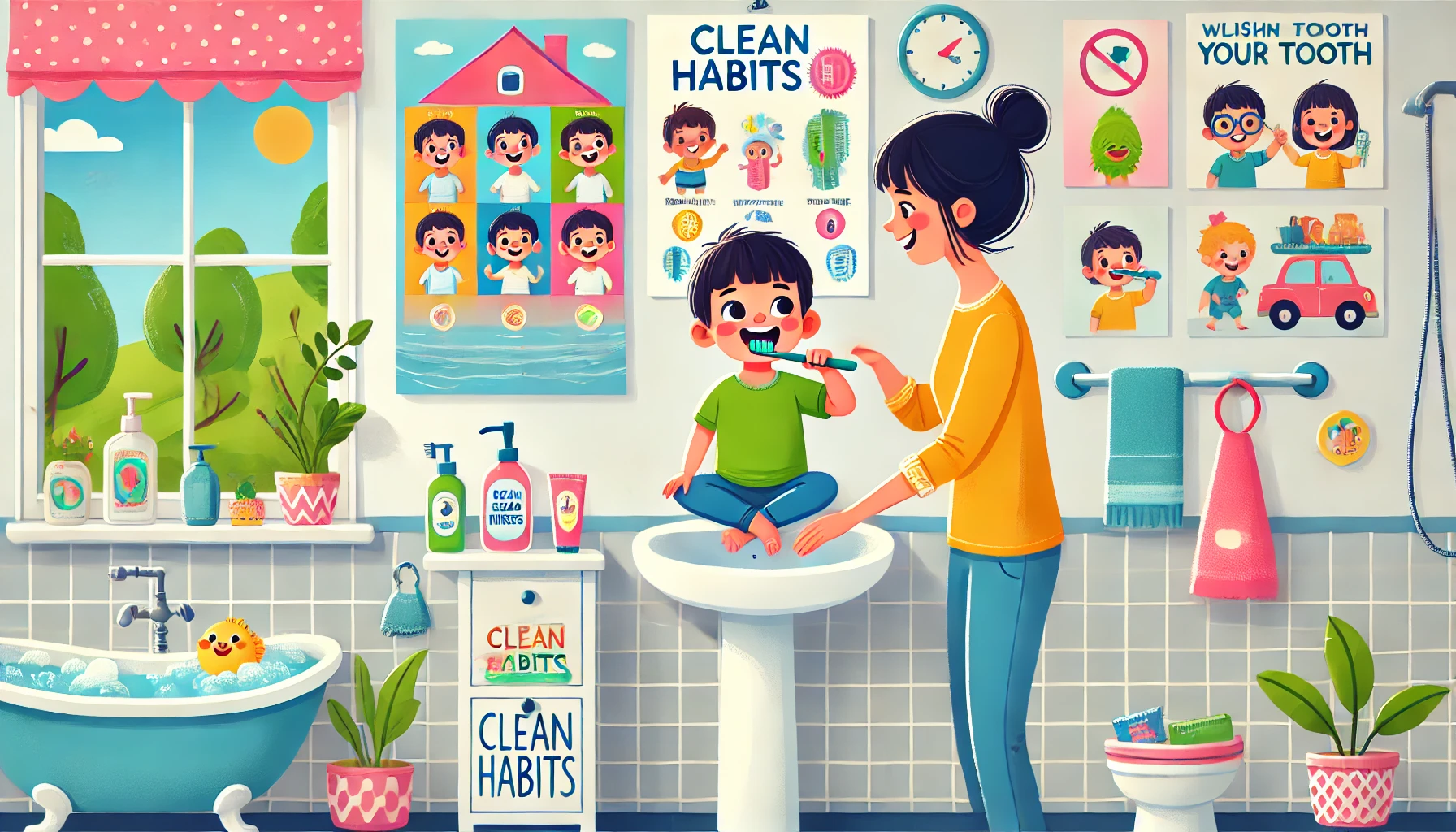How to Teach Young Children About Basic Hygiene and Cleanliness
Teaching young children about hygiene is one of the most valuable lessons you can give them. Clean habits like handwashing, brushing teeth, and keeping spaces tidy not only protect their health but also build responsibility and independence. With fun activities, clear explanations, and positive reinforcement, children can learn to take care of their bodies and surroundings every day.
Why Hygiene Education Matters
- Protects children from germs and illness
- Builds lifelong healthy habits
- Encourages independence and responsibility
- Supports social well-being
- Fosters respect for shared spaces
1. Explain Hygiene in Simple Words
Help children understand the “why” behind the habits.
Activity Idea:
- Say: “Washing our hands washes away germs that can make us sick.”
- Use visual aids like a germ poster or toy microscope.
- Ask: “When should we wash our hands?”
What Kids Learn:
- The connection between germs and hygiene.
- Everyday hygiene triggers (before eating, after playing outside).
- Awareness of personal care routines.
2. Make Handwashing Fun
Turn hygiene into a playful activity.
Activity Idea:
- Sing a song while washing hands, like the “ABC” song or “Twinkle Twinkle Little Star.”
- Use colorful soaps and fun towels.
- Create a handwashing chart with stickers for completed washes.
What Kids Learn:
- Proper handwashing technique and timing.
- Enjoyment of routine hygiene.
- Positive reinforcement of habits.
3. Teach Brushing Teeth Through Play
Dental care is essential for overall health.
Activity Idea:
- Use a stuffed animal or model mouth to practice brushing.
- Let your child choose their own toothbrush and toothpaste flavor.
- Sing a “two-minute brushing” song to guide time.
What Kids Learn:
- Importance of oral hygiene.
- Daily responsibility for healthy teeth.
- Confidence in brushing independently.
4. Read Books About Cleanliness
Stories make hygiene relatable and fun.
Activity Idea:
- Read books like Germs Are Not for Sharing by Elizabeth Verdick or Brush, Brush, Brush! by Alicia Padron.
- Ask: “What did the characters do to stay clean?”
- Create a homemade book about your child’s hygiene routine.
What Kids Learn:
- Visual and emotional connection to clean habits.
- Reinforcement of good hygiene through storytelling.
- Ownership of their daily routine.
5. Practice Proper Sneezing and Coughing Etiquette
Teach manners that protect others.
Activity Idea:
- Show: “We sneeze into our elbow like this!”
- Use role-play: pretend sneezes and practice clean responses.
- Praise: “Great job covering your cough!”
What Kids Learn:
- Respect for others’ health.
- Habits that prevent spreading germs.
- Social responsibility.
6. Create a “Clean-Up Routine” for Toys and Spaces
Hygiene extends to their environment.
Activity Idea:
- Use a clean-up song to make tidying up fun.
- Set up easy-to-reach bins and baskets for toys.
- Celebrate clean spaces: “Look how tidy your room is!”
What Kids Learn:
- Responsibility for shared and personal spaces.
- Organization skills.
- Pride in cleanliness.
7. Teach the Importance of Bath Time
Daily body care is essential.
Activity Idea:
- Let your child choose bath toys or fun bubble scents.
- Explain: “Baths wash away dirt and germs after a busy day.”
- Make it playful: pretend you’re “washing the day away!”
What Kids Learn:
- Enjoyment of personal care.
- Comfort and relaxation in routines.
- That hygiene is part of self-love.
8. Celebrate Clean Habits
Positive reinforcement encourages consistency.
Activity Idea:
- Use a hygiene chart with stickers or stamps for completed tasks.
- Give praise: “You remembered to brush your teeth—fantastic!”
- Reflect together: “What did you do today to stay clean?”
What Kids Learn:
- Motivation to maintain hygiene habits.
- Pride in their daily achievements.
- That small actions make a big difference.
Final Thoughts
Teaching young children about basic hygiene and cleanliness empowers them to take care of themselves and others. Through playful routines, visual aids, and positive reinforcement, kids can enjoy learning healthy habits that will stay with them for life. By making hygiene fun and consistent, you’re helping to set the foundation for a lifetime of well-being.
